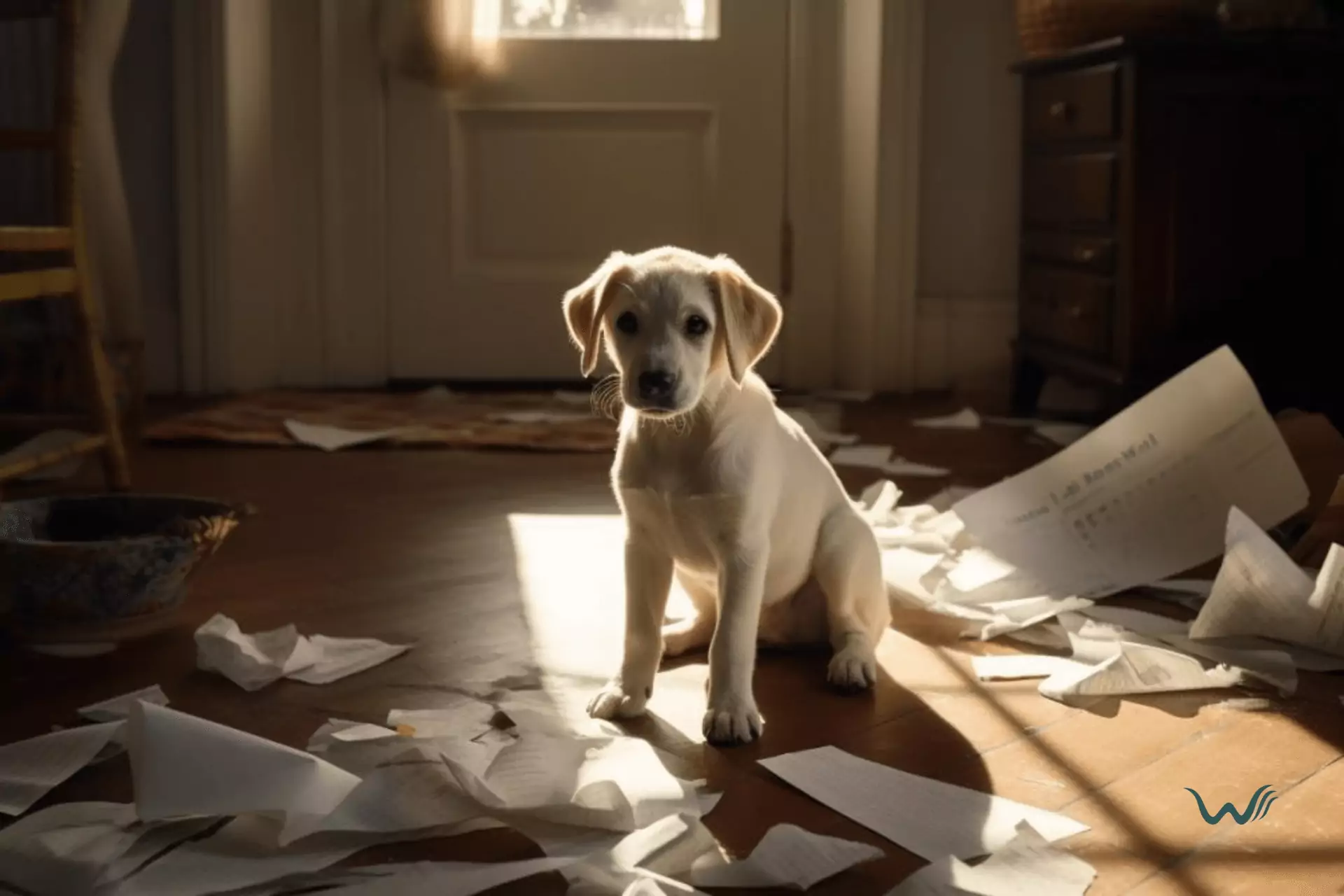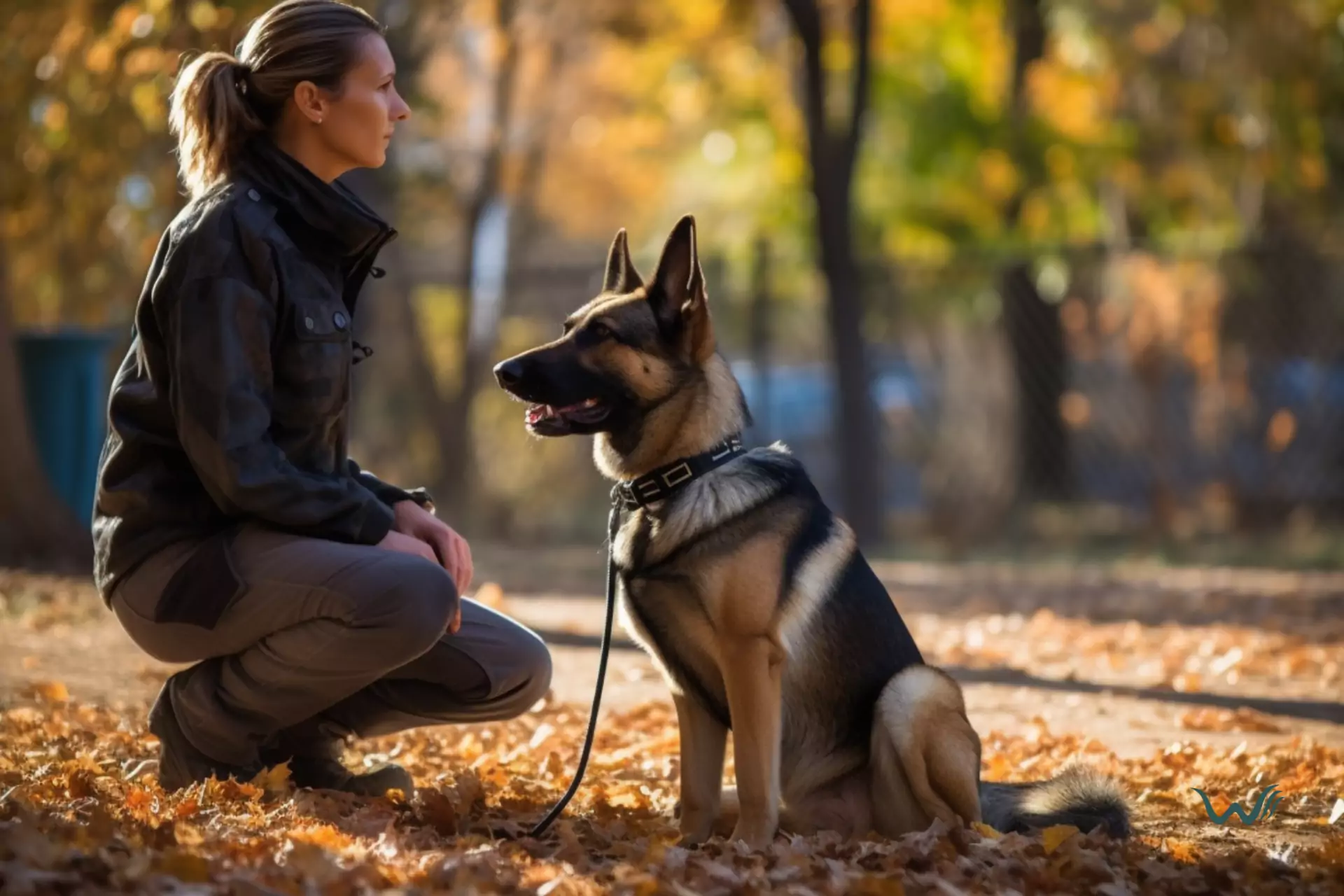

Addressing Common Puppy Housebreaking Problems: Tips For Owners
by Tayyaba Amir
Last updated: April 22, 2024
Verified and Approved by:
Angela Morris,
MSW, LCSW
Fact Checked

Are you tired of cleaning up messes and dealing with accidents in your home? Are you frustrated with your puppy’s lack of progress in housebreaking? Well, fret no more, because this article is here to help! In this guide, we will address the common puppy housebreaking problems that many owners face and provide you with effective tips to overcome them. Housebreaking a puppy can be a challenging and frustrating task, but with the right knowledge and approach, you can turn things around.
We will start by discussing the importance of establishing a consistent routine for your furry friend. Dogs thrive on structure and routine, so by providing them with a set schedule for feeding, potty breaks, and playtime, you can help them understand what is expected of them and reduce accidents in the house. The next section will focus on reinforcing positive behaviors. Positive reinforcement is key when it comes to training a puppy, so we will explore various techniques to reward good behavior and discourage bad habits.
So, get ready to tackle those housebreaking problems head-on and create a harmonious environment for both you and your puppy!
Establishing a Consistent Routine
First and foremost, it’s important to set a regular schedule for your furry friend. This means feeding them at the same times each day and taking them outside for bathroom breaks at consistent intervals. By doing so, you’ll be teaching your puppy when it’s time to eat and when it’s time to go potty, making it easier for them to understand and follow the routine.
Additionally, it’s important to provide your puppy with ample opportunities to relieve themselves outside. Take them to the same spot in your yard every time, as the familiar scent will help trigger their instincts. Be patient and give them plenty of time to do their business.
They are still learning, so accidents may happen. If they do have an accident inside, don’t scold or punish them. Instead, gently redirect them outside and clean up the mess with an enzymatic cleaner to eliminate any lingering scent. By establishing a consistent routine and being patient with your puppy, you’ll be well on your way to effectively housebreaking them.
Reinforcing Positive Behaviors
To effectively reinforce positive behaviors in your puppy, it’s essential to be consistent and use praise and rewards as a carrot to motivate them. When your puppy exhibits a desired behavior, such as going potty outside or sitting on command, make sure to immediately praise them with enthusiasm and give them a tasty treat. By doing this consistently, your puppy will start to associate these positive behaviors with rewards, and they will be more likely to repeat them in the future.
In addition to praise and rewards, it’s important to use positive reinforcement techniques such as clicker training or verbal cues. Clicker training involves using a small device that makes a distinct clicking sound when your puppy performs a desired behavior. This sound acts as a marker and signals to your puppy that they have done something right. Pairing the click with a treat and verbal praise will reinforce the positive behavior even further.
Verbal cues, such as saying “good boy” or “good girl,” can also be used to indicate when your puppy has done something well. Be consistent with your cues and use them every time your puppy exhibits positive behavior. Reinforcing positive behaviors is all about creating a positive and rewarding experience for your puppy. By being consistent, using praise and rewards, and implementing positive reinforcement techniques, you will not only teach your puppy to behave appropriately, but you will also strengthen the bond between you and your furry friend.
Addressing Accidents and Mistakes
Dealing with accidents and mistakes can be frustrating, but it’s important to remain patient and consistent with your puppy’s housebreaking training. Your puppy is still learning and it’s natural for them to make the occasional mistake.
Here are some tips to help you address accidents and mistakes positively and effectively:
- Stay calm and avoid punishment: It’s important to stay calm and avoid punishing your puppy for accidents. Punishment can create fear and anxiety, making it harder for your puppy to learn. Instead, focus on redirecting their behavior to the appropriate spot.
- Use positive reinforcement: When your puppy does eliminate in the designated area, be sure to praise and reward them. Positive reinforcement will help them associate the desired behavior with a positive outcome, making them more likely to repeat it.
- Create a consistent routine: Establishing a consistent routine can greatly reduce the chances of accidents. Take your puppy outside regularly, especially after meals, naps, and playtime. This will help them learn when and where they should eliminate.
- Keep an eye on your puppy: Supervision is key during the housebreaking process. Keep an eye on your puppy at all times, especially when they are not in their designated area. This will allow you to catch any signs that they need to eliminate and redirect them to the appropriate spot.
Using Crate Training Effectively
Make crate training your puppy a breeze by using a cozy den-like crate that will become their haven. Choose a crate that’s just big enough for your puppy to stand up, turn around, and lie down comfortably. This creates a cozy and secure space that mimics the den-like environment that puppies naturally seek.
Place soft bedding or blankets inside the crate to make it even more inviting. Introduce your puppy to the crate gradually, allowing them to explore and get used to it at their own pace. Use treats and positive reinforcement to encourage them to enter and spend time in the crate. Soon enough, they’ll come to view the crate as their sanctuary.
When using the crate for housebreaking, it’s important to establish a routine. Take your puppy outside to relieve themselves first thing in the morning, after meals, before bedtime, and after any periods of play or excitement. Use a specific command, such as “go potty,” to associate with the act of going to the bathroom.
If your puppy doesn’t relieve themselves within a few minutes, bring them back inside and place them in the crate for a short period. This helps them understand that the crate isn’t meant for play or relaxation, but rather for quiet time. Once they’ve spent a few minutes in the crate, take them outside again to try and encourage them to go potty. Repeat this process until they’re successful.
Seeking Professional Help When Needed
If you’re having difficulty with puppy housebreaking, don’t hesitate to seek professional help. Sometimes, despite your best efforts, your puppy may continue to have accidents in the house or struggle with the training process. This can be frustrating and stressful for both you and your furry friend.
However, reaching out to a professional trainer or behaviorist can make a world of difference. A professional can assess the situation and provide personalized guidance and techniques to help address your specific housebreaking challenges. They have the knowledge and experience to identify any underlying issues that may be contributing to the problem and can offer effective solutions.
Whether it’s a medical issue, a behavioral problem, or simply a need for additional training strategies, a professional can provide the expertise and support you need. Seeking professional help is not a sign of failure or incompetence as a pet owner. It’s a proactive step towards resolving the issue and creating a happier, more harmonious environment for both you and your puppy. So, if you’re feeling overwhelmed or stuck with your puppy’s housebreaking, don’t hesitate to reach out to a professional for assistance. They are there to help you and your furry friend succeed in this important aspect of puppy training.
Frequently Asked Questions
How long does it typically take for a puppy to be fully housebroken?
Housebreaking a puppy can be a challenging journey, but fear not! It typically takes around 4-6 months for a puppy to be fully housebroken. Just remember, every accident is a chance to practice your patience and cleaning skills!
What should I do if my puppy constantly pees or poops inside the house even after following a consistent routine?
If your pup keeps having accidents, stay patient and consistent. Consider increasing potty breaks and supervision. Reward them for doing their business outside and clean up accidents with an enzymatic cleaner to remove the scent. Seek professional help if needed.
Can I use pee pads or indoor potty options while housebreaking my puppy?
Yes, you can use pee pads or indoor potty options while housebreaking your puppy. However, it’s important to remember that these are temporary solutions and should be used alongside a consistent routine for long-term success.
What should I do if my puppy shows signs of anxiety or fear related to housebreaking?
If your puppy shows signs of anxiety or fear related to housebreaking, it’s important to approach the situation with patience and understanding. Create a calm and positive environment, provide reassurance, and consider seeking professional help if needed.
Is it possible to housebreak an older rescue dog or is it more difficult than training a puppy?
Is it possible to housebreak an older rescue dog or is it more difficult than training a puppy? Well, let me tell you, with patience, consistency, and lots of love, you can housebreak an older rescue dog!
Certify Your Emotional Support Animal Today

Why You Can Rely on Us?
At Wellness Wag, we believe your pet deserves care rooted in both science and compassion. Each article is carefully researched, written in clear language for pet owners, and then reviewed by qualified professionals to ensure the information is evidence-based, current, and practical for real-life care. Our goal is to help you feel confident in making informed decisions about your pet’s health and well-being.
Reviewed by
Angela Morris, MSW, LCSW
Angela is a licensed clinical social worker with 20 years of experience in patient advocacy and community mental health. She has assisted numerous clients with ESA evaluations and brings a deep understanding of disability accommodations, ensuring that all information is accurate, supportive, and practical.

Written by :
Tayyaba Amir
Last Updated :
April 22, 2024










